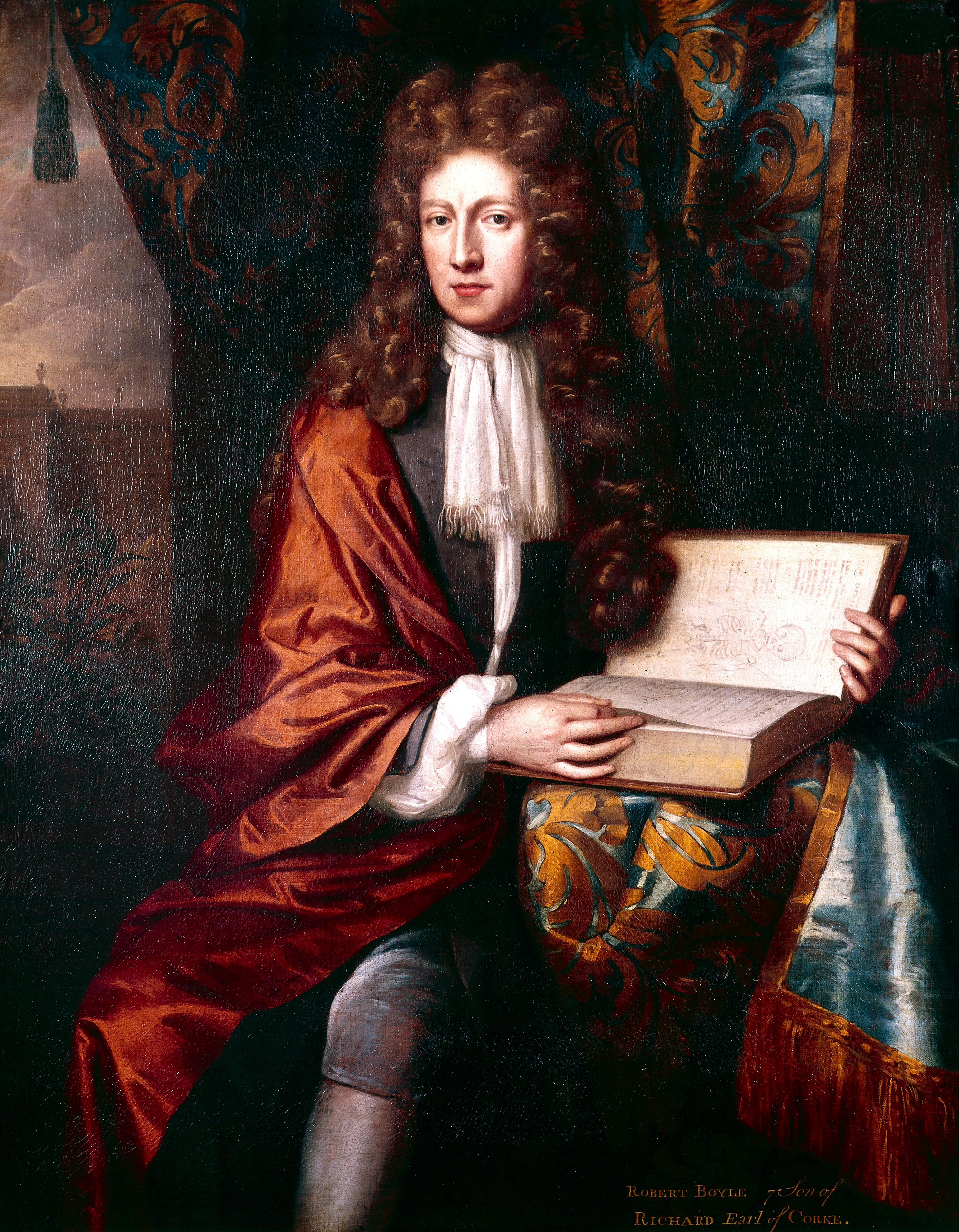Boyle, Robert (1627-1691), an Irish scientist, is considered one of the first modern chemists. He helped establish the experimental method in chemistry and physics.

Boyle is best known for his experiments on gases that led to the formulation of Boyle’s law (see Gas (Gas laws) ). This law says the volume of a gas at constant temperature varies inversely to the pressure applied to the gas. Boyle also helped improve the air pump, and with it he investigated the nature of vacuums.
Boyle introduced many new methods for determining the identity and chemical composition of substances. He disproved the theory that air, earth, fire, and water were the basic elements of all matter. Boyle argued that all basic physical properties were due to the motion of atoms, which he called “corpuscles.”
Boyle lived in England for most of his life. He was a founding member of the Royal Society of London, one of the world’s foremost scientific organizations. Boyle described his experiments in many books. He was born on Jan. 25, 1627, at Lismore Castle, Ireland. He died on Dec. 30, 1691.
